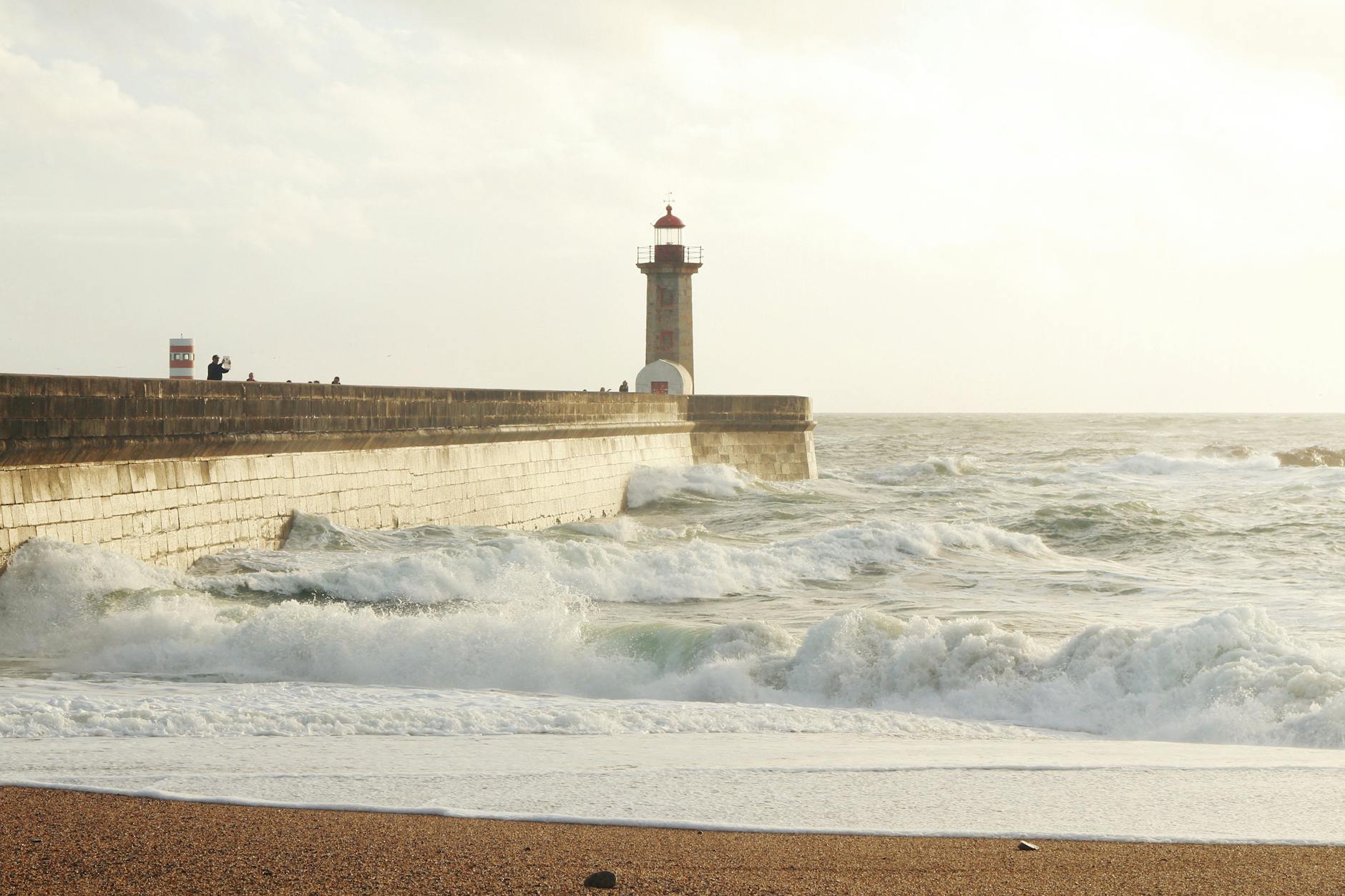How to Explore Unique Ecosystems in Australia Like the Galapagos

Discovering Australia's Unique Ecosystems
Diverse Habitats Beyond the Galapagos
Australia's diverse habitats offer fascinating alternatives to the well-trodden routes of South America tours. The richness of our local ecosystems, such as those around The Royal Botanic Gardens Victoria, provides an intricate tapestry of life, showcasing native flora that rivals the biodiversity seen in destinations like the Galapagos. These gardens serve as a living catalog of Australia's unique plant life, presenting an environment where ecologists like myself can study and appreciate the interactions between species.
Iconic Australian Biodiversity Hotspots
When considering the biodiversity hotspots in Australia, one cannot overlook the stunning variety of wildlife inhabiting the Great Barrier Reef and the Daintree Rainforest. These areas are not only iconic representations of Australia's natural beauty but also critical for conservation efforts. Much like Machu Picchu tours, which offer insights into ancient ecosystems, Australia's hotspots provide an unparalleled view into the origins and evolution of life on our continent.
Protection and Conservation Efforts
Conservation efforts across Australia are pivotal in maintaining these unique ecosystems. Initiatives such as those at The Royal Botanic Gardens Victoria highlight the importance of protecting endemic species. They are integral in ensuring our ecosystems remain as vibrant and complex as the exhibits found at the biodiversity section of the Melbourne Museum. These efforts underscore the necessary balance between preserving natural heritage and supporting responsible ecotourism.
Planning Your Eco-Adventure
Ideal Destinations for Ecotourism
When planning an eco-adventure that resonates with your scientific curiosity, consider the Galapagos Islands, a true haven for biodiversity, much like the exhibits at Melbourne Museum. These destinations are perfect for exploring unique ecosystems and witnessing conservation efforts in action. The Galapagos Islands tours are designed to immerse you in nature’s marvels, offering insights into environmental practices that protect these delicate ecosystems. While you may be drawn to the Galapagos, Australia itself holds treasures like the Great Barrier Reef and Kakadu National Park, rich with unparalleled wildlife and diverse habitats.
Best Times for Ecological Visits
Timing is everything when planning a trip focused on ecological exploration. Australia’s varied landscapes, from the vibrant Yarra River trails to the arid Outback, offer unique experiences year-round. However, for visits to the Galapagos Islands, the period from December to May offers warmer waters and lush landscapes, perfect for observing both marine and terrestrial wildlife. Align your visit with local seasonal events to witness natural phenomena such as animal migrations, providing you with a deeper understanding of ecological patterns.
Essential Gear for Field Exploration
Equipping yourself with the right gear is crucial for a successful eco-adventure. Essential items include breathable clothing for both humidity and heat, sturdy hiking boots for diverse terrains, and field guides for plant and animal identification, much like those found at The Royal Botanic Gardens Victoria. A robust camera for documenting observations and a notebook for logging data will enhance your exploration, allowing you to record your experiences and contribute to ongoing conservation efforts.
Responsible Ecotourism Practices
Minimizing Environmental Footprints
Engaging in ecotourism requires a careful approach to ensure that your activities do not harm the environment. In destinations like Cuba, where travel can impact local ecosystems, thoughtful planning becomes essential. Start by choosing eco-friendly accommodations and activities that align with sustainable practices. Opt for reusable items, such as water bottles and bags, to reduce single-use plastics that often end up polluting the environment during your cuba travel.
Supporting Local Conservation Initiatives
Supporting local conservation projects can have a significant impact on preserving biodiversity. When organising your visit to places like Melbourne's Royal Botanic Gardens Victoria, consider contributing to their efforts, either through donations or by volunteering. These initiatives often include habitat restoration and species protection programmes that require both hands-on assistance and financial support. Engaging in such efforts not only enriches your travel experience but also aids in sustaining the environmental integrity of these vital places.
Engaging with Indigenous Knowledge
The integration of Indigenous knowledge into ecotourism provides a richer understanding of natural landscapes. Indigenous communities have long been stewards of the land, and learning from their traditional ecological practices can offer valuable insights into sustainable management. When traveling, seek experiences led by Indigenous guides or organisations that emphasise respect and acknowledgement of their cultural significance. This approach not only helps preserve their heritage but also enhances your ecological knowledge, fostering a more profound connection with the environment.
Noteworthy Ecosystem Challenges
Threats Facing Australia's Wildlife
Australia's wildlife faces myriad challenges that threaten its unique biodiversity. Habitat destruction, largely driven by urban expansion, agriculture, and mining, remains a significant concern. These activities encroach upon the natural habitats of endemic species, disrupting their galapagos cruise-like isolation which is essential for genetic diversity. Furthermore, invasive species, such as the European rabbit and feral cats, pose a dire threat by predating on native species and outcompeting them for resources.
Climate change further exacerbates these issues by altering habitats and disrupting food sources. Rising temperatures and changing precipitation patterns have unpredictable effects on species that have thrived in stable environments for millennia. Uncontrolled bushfires, now more frequent and intense, decimate large areas of flora and fauna, leaving a trail of destruction in some of the most vulnerable ecosystems akin to the biodiversity exhibits at Melbourne Museum.
Climate Impact on Ecosystems
The effects of climate change are far-reaching, impacting Australia's ecosystems in profound ways. Coral reefs, such as the Great Barrier Reef, face bleaching events that threaten their survival. Similarly, Australia's alpine regions are experiencing shorter snow seasons, endangering species that rely on these conditions to survive. Sea level rise threatens coastal habitats, pushing species inland and leading to potential conflicts with human activities.
Strategies for mitigating these impacts must focus on both reducing emissions and ensuring the resilience of ecosystems. This includes efforts to restore damaged habitats and introduce adaptive measures to help wildlife cope with altering climates, as well as educating communities along places like the Yarra River trails on sustainable practices.
Balancing Tourism and Conservation
Tourism, while beneficial for raising awareness and generating revenue for conservation, can also impose pressure on fragile ecosystems. Increased foot traffic, improper waste management, and development to accommodate tourists can lead to habitat degradation. The challenge lies in managing tourism in a way that supports conservation without compromising the health of ecosystems. Implementing strict ecological guidelines and fostering partnerships with local communities are essential to achieve this delicate balance. This approach ensures that tourism contributes positively to conservation efforts, serving as a tool for education and awareness.
Wildlife Conservation Challenges
Threats to Iconic Species
Australia's wildlife is facing serious threats that challenge conservation efforts. Urban expansion, for instance, fragments habitats critical for species like the Leadbeater's Possum and the Southern Corroboree Frog. This habitat loss escalates the risk of these species becoming endangered. Additionally, invasive species, such as the European Rabbit, disrupt local ecosystems, competing with native fauna for food and altering natural vegetation patterns observed along places like the Yarra River trails.
Climate Change Effects
Climate change exacerbates these challenges by altering precipitation patterns and increasing temperatures. Iconic landscapes, including those at The Royal Botanic Gardens Victoria, are increasingly susceptible to bushfires and droughts. This not only affects plant life but has a cascading impact on the fauna reliant on these ecosystems. Understanding these changes is important in developing effective strategies to ensure the preservation of Australia's natural heritage.
Tourism Versus Conservation
There is a delicate balance between promoting ecotourism and conserving fragile ecosystems. Popular destinations like the biodiversity exhibits at the Melbourne Museum highlight the wonders of Australian nature. Still, they caution us to recognise that excessive foot traffic and pollution can degrade these areas. Responsible travel practices, such as following designated trails and supporting local conservation projects, are essential in maintaining the pristine condition of these extraordinary environments. This combined approach helps in achieving a sustainable future where environmental sustainability and development coexist.


